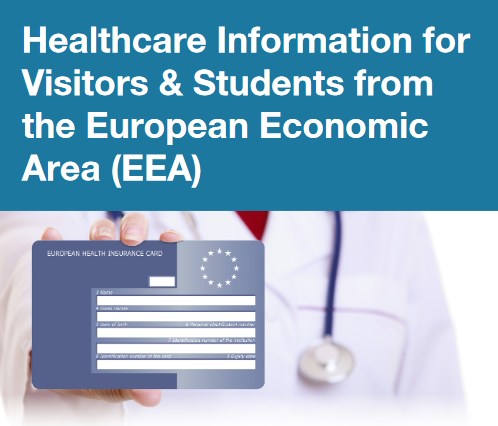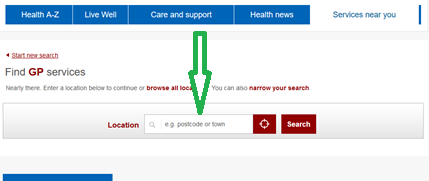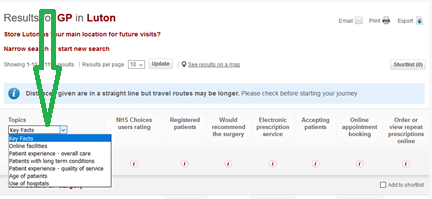Online Doctors in the UK compared
This article has one simple aim, to show you how to easily compare online doctors operating in the UK.
We will take you through how to compare services to find the best.
- How online GP costs vary and what you get for your money.
- The experience of patients using these services.
- How to find reviews of NHS organisations. Showing how the service provided is rated by official bodies and a few other key factors to consider.
You should feel empowered to decide if using an internet doctor is the best choice for your situation. You will also understand the process involved in choosing, through our online doctors review section.
Video call online GP services offered in the UK
Due to demand many companies are now offering GP video call services in the UK. These companies try and make seeking medical advice more convenient and easier to access. These services offer a Platform which enables you to connect online, in real time, to Practitioners.
We look at some of the key players in this expanding market, Babylon Health and Push Dr.
We explain how official NHS bodies rate these web based GP services. These companies have great promotional videos and slick websites, we explain how to identify key criteria such as do they provide good medical advice and can they be trusted.
This is not from our personal experience, but from NHS regulatory bodies and other official sources that many people don’t know are there to help make this decision.
Online Doctors Apps Compared
Two big online doctors offer appointments in the UK, Babylon Health and Push Doctor. These companies offer slightly different products, but use NHS GPs via an app.
The Push Doctor app has a 4.7 rating, from nearly 9,000 reviews and is free to download.
Babylon Health has a 4.8 rating and nearly 12,000 reviews. Again this is a free app designed to let you talk to a doctor, after subscribing.
Key factors when choosing which of these services to use include the cost, time it takes to get an appointment and quality of the health advice provided. Further information on these elements is provided below.
Online Doctors Appointments Compared
The time between booking an appointment and speaking to a doctor using one of the Push Dr or Babylon apps will vary. Both companies advertise you can talk to a GP the same day, often within a few hours. This is a big claim and a potential major benefit compared to some traditional surgeries. These online doctor websites detail the medical professionals who you will be talking to using their app.
Are Online Doctors’ Appointments Available on the Weekend?
Push doctor claim to be the UKs number one online doctor. Their doctors are available from 8am-8pm 7 days a week. Bookings can be made 24/7 and prescriptions can be picked up the same day.
Babylon Health state you can talk to a doctor 24/7 ‘in minutes’, including weekends. After downloading the app you can choose a date and time for the conversation and decide if you want video chat, or to use the audio only option. To use the appointment time more effectively you may wish to add notes or photos ahead of your consultation. This is a payment led option, Babylon also offer a free online GP consultation service called GP at hand.
GP at hand requires you as the patient to transfer your GP practice from your current physical NHS GP practice, to the GP at hand service. This is not suitable for all patients, further information can be found here. We explain how to change a GP practice later in this article.
Online GP Appointment Costs Compared
Two main pricing models are offered by Babylon online GP services, a one-off appointment can be booked for £25.
Babylon offer a second online doctors service subscription model. For £5 per month you can have unlimited appointments with NHS doctors using their app. There is a minimum contract of three months.
Push Doctor offer two main pricing plans, a £30 appointment for non-members, there are also additional costs for prescription admin fees and appointment extensions.
The second involve members paying £3 per month, and appointments are £20 as and when you need them, including weekends. Push Dr is available for IOS and android.
Can Online GPs Give me a Prescription?
The short answer is online GPs can give you a prescription during your appointment. There is no additional charge for creating this prescription for Babylon members, however, you will need to pay any relevant charges when collecting your prescription from your pharmacy. This is because Babylon generate a private prescription and are not part of the NHS prescription charge system. A prescription should be available in about an hour up until 10pm, after this time it will be ready to collect the next morning. The Babylon app also provides the choice to have your medicine delivered directly, the charge for this varies.
Push Dr operate a similar policy to create a prescription. After your consultation you will be asked to enter a postcode and a local pharmacy will be found and the prescription sent to it. A one hour prescription collection service is available costing £2.95, otherwise most prescriptions are available the same day at no extra cost. Prescriptions issued by Push Dr are private prescriptions and you will be charged for the medicine.
The Best Online Doctors in the UK
The Care Quality Commission (CQC) are the independent regulator of health and social care services in the UK. It is the CQC’s role to make sure health and social care services provide people with safe, effective, compassionate, high-quality care. The CQC visit each general practice and assess them against a number of criteria. The surgeries are then rated from ‘Inadequate’, to ‘Requires Improvement’, ‘Good’ and the highest rating of ‘Outstanding’. You can see the results for your current general practice on the CQC’s website. The CQC are therefore a great source for understanding how well the best online doctors in the UK are performing.
The CQC’s reporting of services offered by Push Dr Limited can be found here and those for Babylon Health here.
The alternative to an online GP appointment
Choosing a GP used to involve registering with the practice closest to your home or work. For most of the time, if you’re lucky that would be it, unless a foreign holiday required a set of injections.
At other times we really depend on our local medical services. When you wake up ill. That’s when the fun started, trying to get an appointment with your trusted GP. This usually involved phoning up or queuing before trying to convince the receptionist you needed an appointment to see the GP. There are two main problems with this model:
- Taking time off work / out of education to visit the surgery for an appointment.
- The length of time it took between feeling ill and getting an appointment.
Talk to my local doctor by skype
Many general practices in the UK have introduced a number of methods to improve on the ‘fall ill, que up and wait for an appointment’ model described.
It is now common for practices to offer for the GP to call you back, if suitable. They will then decide how to progress and if a face-to-face appointment is needed.
The ability to choose and book a time slot online also reduces a large part of the uncertainty about when an appointment is available. However, it is common for appointments to be running late, meaning more time than expected still needs to be taken off work, or away from education. It is often not just a quick in and out service.
Talking to a doctor by skype, via an app, or video call is also being offered in some local surgeries, but at the time of writing (2018) not all. These quickly emerging companies offering apps letting you to talk to a NHS GP 24/7, via a smartphone are a huge development in the practitioner / patient relationship.
The negatives about using an online doctor
A balanced view about how to video call online GP services needs to highlight the negatives of such services. It can be much quicker to call an online video call doctor than trying to get an appointment at your local practice, but be aware there are negatives about using an online doctor.
- No personal relationship (but this is not so common now anyway). If you are known personally by your local GP a good relationship can develop. The organisations running online doctor services employ hundreds of GPs, we are not aware of the option to request to speak to a specific practitioner.
- A second obvious drawback is the cost. Apart from the cost of parking, petrol, bus fare or taking time off work there are no immediate costs with using your local surgery. Prescriptions are currently charged for in most situations in England, unless you are exempt. All of the online video call providers highlighted have a system to charge patients, either per session, or for a monthly subscription. This cost needs to be weighed against the benefits of time saved and cost of getting to the surgery.
- Registration issues. To use the GP at hand service you will need to register with Babylon health. This means de-registering with your current practice. Babylon take you through this process, but it means you will no longer be part of your local GP surgery. You can still remain part of your local practice if you choose to use the monthly subscription service, rather than GP at hand.
The benefits of using a video call GP service
Video call GP services claim a number of benefits including speed, flexibility and comfort.
- Speed, it is often possible to contact a medic the same day, or even same hour as you decide it is necessary. A range of available slots will be shown, allowing you to pick the best option.
- Flexibility (no time off work etc.) Needing to see the doctor is now a more flexible process. Choose a time, then call, you know how long it will take and can plan accordingly.
- Don’t have to wait in noisy receptions with ill people. Many patients don’t like to sit and wait in a reception area full of ill people. Receptionists are often notorious, these factors are removed when using a video call GP service.
These factors are only beneficial when the medical diagnosis and treatment provided is of a high standard. Use the tools highlighted to check how online doctors are rated.
Online doctors in the UK compared summary
Your health and the advice provided is key when comparing online doctors in the UK. Many companies offer facilities to talk to a General Practitioner via an app. Be sure to use a reputable organisation using GPs that are registered with the NHS and CQC and are based in the UK.
Push Dr and Babylon health are two of the biggest providers of online GP consultations. Both provide the facility to talk with a registered NHS GP using their apps, with slightly varying pricing. Prescriptions are available from both companies and they are available within a very short time frame from a local pharmacy, or via delivery services.
De-registering from your current GP and registering with Babylon’s GP at hand service is a big step, but may be beneficial to patients who have little time to visit a physical doctor’s surgery.
Don’t just consider the price and speed that you can get an appointment, ensure you are happy with the medical advice provided by these companies.



